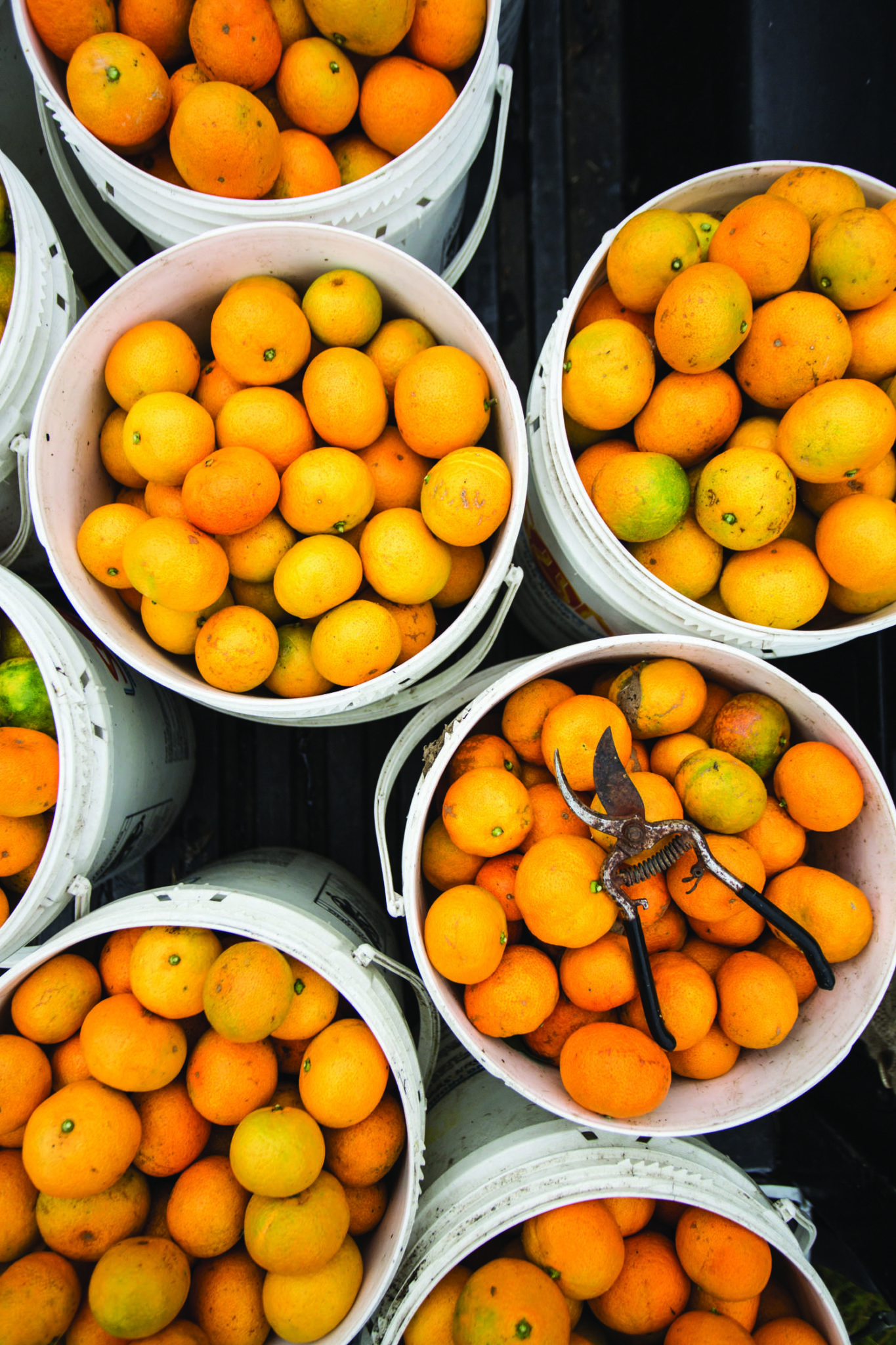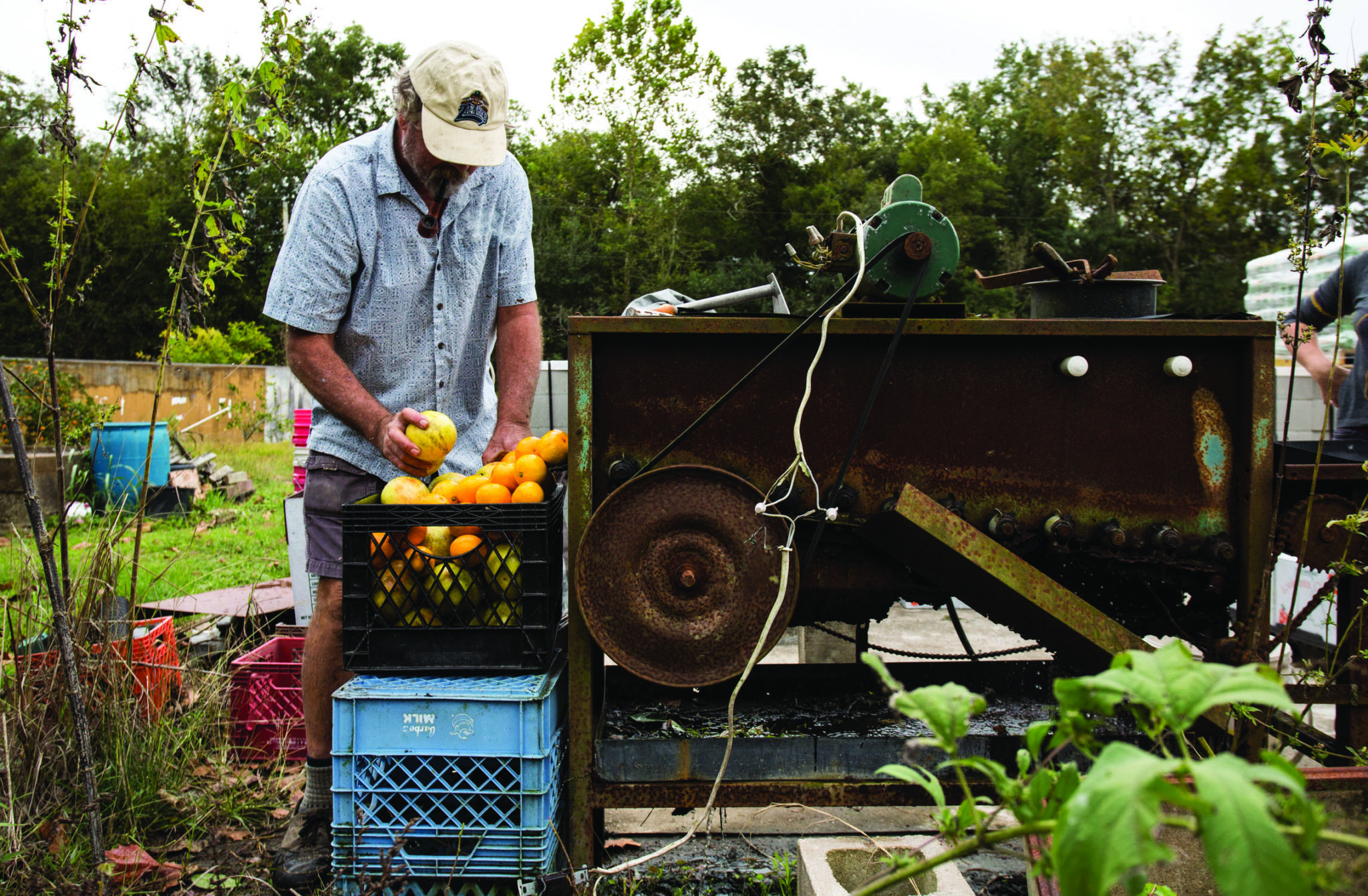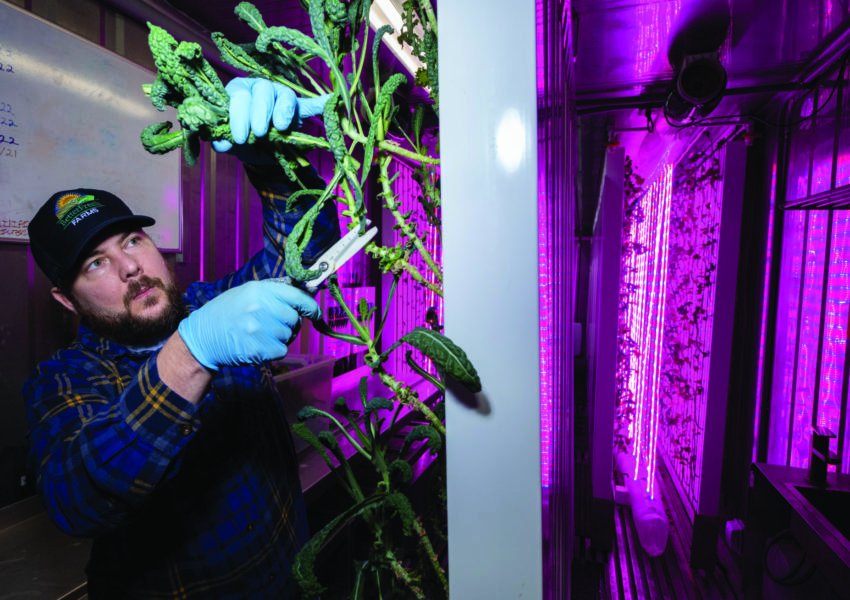Groves and Grace Notes from a Louisiana citrus farm
By Rinne Allen
For the last thirty-five years, citrus farmer Fred Schwarz has tended the six hundred–plus satsuma and navel orange trees on his family’s land in low-lying Plaquemines Parish, ten miles downriver from New Orleans. As a child in New Orleans, Schwarz and his parents escaped the city on weekends to tend their small grove.
![]()
Eventually, Schwarz and his family relocated to the land full-time. He planted more trees and grew the farm into a vocation. He was an early leader in the Louisiana movement for organic citrus designations and supplied Whole Foods Market with satsumas for decades. The acreage got plenty of rain during Hurricane Katrina in 2005 but didn’t flood, partly because it faces a strong bend in the Mississippi River where a deep swath of batture buffers the river and levee.

Seven years later, when Hurricane Isaac passed over, Schwarz watched as floodwaters rose ten feet in just forty-five minutes. The water came not from the Mississippi River, but from the rear of his property, to the east, from the direction of the Gulf and Biloxi Bay.
Schwarz was here when the storm hit. He waded westward to the twenty-six-foot levee in search of higher ground. A modular home floated by at eye level, and he entered it for shelter. The corner of the structure lodged itself into the earthen levee, which stopped Schwarz’s forward motion. He waited inside the floating home for hours, sitting atop the kitchen counter, until the storm passed.
Over the next few days, the water receded. He surveyed the damage: The first floor of his house had flooded, and all of his trees had been fully submerged. That fall, his crop was rendered inedible due to saline contamination. The next year, as he worked around the clock to rebuild his home and business, a well-meaning parish-led patrol sprayed his organic grove with pesticide to stave off an invasive insect.
Schwarz had declined the treatment, but the spray planes misidentified his land. His crops, while sellable, were quarantined from the organic label for the next three years. Revenue dropped, but he persisted, selling his citrus on Saturdays from the back of his truck in the Garden District, a few blocks from where he grew up.

This year marks the end of the three-year quarantine, but Schwarz will likely not seek the organic certification due to the high cost and time-consuming application process. Salinity from Isaac still plagues some of the trees. He also predicts a smaller harvest because of recent unpredictable weather patterns: earlier blooms combined with late-season frosts. He says, “I would like to get out to the world how goddamn fragile this environment is, and how bountiful.”
Rinne Allen is a photographer based in Athens, Georgia.




